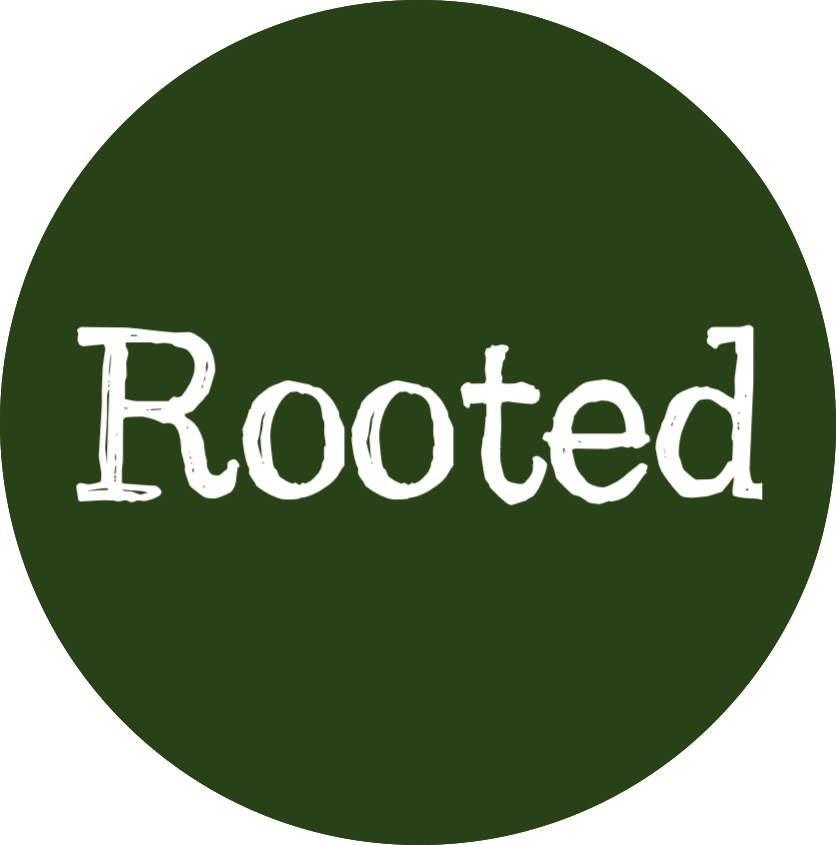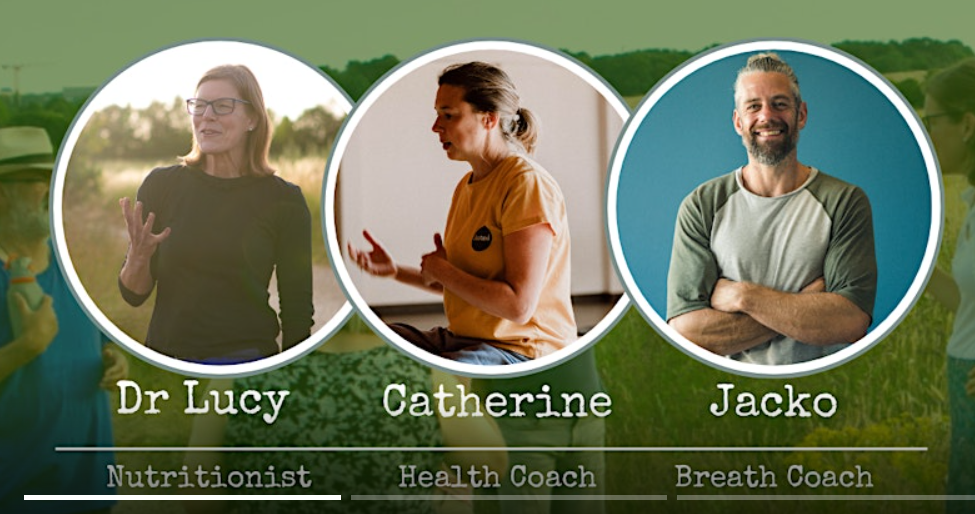Catherine
Women and Fasting
To fast or not to fast?
That is the question.. with a more complex answer than just yes or no - especially if you are female!
Intermittent Fasting (IF) has become one of the more recent health trends.
In reality, it has naturally been part of our human history with periods of lower food availability especially in certain seasons.

What is Intermittent Fasting (IF)?
In case you haven’t heard of it, whilst the definition isn’t universally accepted, generally it refers to intentional abstinence from eating or drinking calorific beverages, with a specific ‘feeding window’. A commonly used example is 16 hours fasting, with an 8-hour feeding window. In a day, this may be eating within the hours of 11am-7pm, with nothing except water or black tea/coffee outside of these hours.
There are many proposed benefits;
- Improved ‘gut health’ (increased diversity and function of ‘good bugs’ in the gut); These help to regulate our immune system, make some vitamins, digest food, influence our mood and our appetite.
- Improved blood glucose (sugar) control; This reduces diabetes risk, can improve cholesterol levels (especially triglycerides), blood pressure, mental focus, energy levels, body composition improvements, sleep improvements.
- Promotes autophagy - the process by which our immune system clears old/damaged cells and ‘debris’ – proposed to help reduce the negative effects of aging including diseases like Parkinson’s and Alzheimer’s development.
- IF is widely promoted and many people find it really beneficial for the above reasons and relatively easy to implement – it doesn’t involve calorie counting, excluding particular foods - so it can be a great tool for many people.
Nevertheless, as with all of these things, it needs to be right for the individual and there are times when this may not serve our health and wellbeing. This cautionary approach particularly applies to women.
It is becoming a little more well-known, women are often omitted within health research for a number of reasons, which we will skip over to save time! Needless to say though, when you read the latest newspaper article, podcast or celebrity promoting IF, they often don’t mention the findings related to IF are mostly in an adult white male population.
NB. Males and females are physiologically different! As I have heard a few times recently, women aren’t just small men!
As I have heard a few times recently;
"women aren’t just small men!"
My personal experience
Personally, I have been attracted to the health benefits of fasting and overlooked some important personal considerations. As a result, my hormones, sleep, mood, energy took a turn for the worse!
I heard a podcast recently, which succinctly discussed some important considerations for women when looking at taking the approach of fasting and I would highly recommend it – not only for women; most of you males have females in your life and if you are a personal trainer, for example, you are likely to encounter the type of people who may need to be especially aware.
The podcast is:
I heard a podcast recently, which succinctly discussed some important considerations for women when looking at taking the approach of fasting and I would highly recommend it – not only for women; most of you males have females in your life and if you are a personal trainer, for example, you are likely to encounter the type of people who may need to be especially aware.
The podcast is:
To summarise, the podcast discussions regarding women and fasting:
- IF is not well researched in women (plus the definition of IF is different across studies too), so men also need to proceed with caution/attention and not simply follow 'rules' on a blog article and blindly follow!
- IF is a form of hormetic stressor; hormetic stressors are those which provide ‘challenge’ from which we can benefit – like exercise and cold exposure. As with the cold and exercise, there is a goldilocks amount, ie. Too much and in the wrong circumstance can be detrimental. And more is not better!!
- Other stressors (eg. work, sleep deprivation, emotional stressors, ill health) should be taken into account to weigh up the decision to fast or not/ how much to fast, which would apply to men too.
- Women’s bodies during the reproductive years are more sensitive to stressors (fasting is a stressor).
- Signs of fasting too much: losing your cycle or not ovulating (Note, you can have a bleed without ovulating), lengthened cycles, reduced energy, reduced cognitive function, negative impact on exercise, injury/slow recovery from injury, reduced sleep quality.
- Using your cycles as an indicator can be difficult if you are in the perimenopause years and you’re starting to lose regularity to ovulation – it is suggested you back off the fasting (shorter durations of fasts/fewer fasts) to see if this makes a difference.
- If you are doing IF or other calorie/food restriction and you lose your cycle, or stop ovulating, these are red flags to consult professional help – your GP, and back-off the fasting.
- Fasting maybe more suited to the follicular phase of the cycle (day 1 of period to ovulation – around day 14).
- 12 hour overnight ‘digestive rest’ is not considered a stressor and is usually beneficial for all.
- Avoid fasting if you are breast feeding, pregnant, pre-puberty, or during puberty.
- You should be ‘robust’ enough to benefit from fasting; ie. If you are in a state of depletion/long term ill health, then you need to consult with a professional if you wish to fast as it may not be appropriate.
- IF is not usually recommended if you have a history/leniency toward eating disorder, if you are already lean/underweight and/or nutrient deficient.

My Experience. Learn from my mistakes!
I think this information would have greatly benefitted me when entering into IF previously. As a real life example, I think some of my mistakes were:
- Too many stressors:
- I was doing regular – most days – 16-hour fasts alongside too many other stressors:
- Lengthy endurance exercise sessions; running, football, circuit classes; doing a lot of these exercise sessions fasted.
- Family stressors
- Regular cold-water exposure (another stress on the pile)
- I was on the pill , so I couldn’t monitor the impact on my reproductive health – one of the primary health indicators for women.
- I ignored/didn’t notice my sleep quality had reduced (which became another stressor) – I was getting up to go to the loo a number of times and it was very difficult to get up in the morning and I was waking very unrefreshed (even though I was going to bed at 10 pm).
- I was getting cravings for sweet foods/wanting to overeat at certain times.
Note. I felt good initially, especially energy-wise and in my performance (running times). The negative effects noted above gradually crept in over time and so it is only in hindsight I have been able to recognise these as warning signs my body was not in a good place for fasting.
I believe a was eating sufficient calories overall – however, for much of the time, my brain perceived I was in a place of food scarcity and danger (because I was running a lot!). Therefore, my body (wisely) was preventing the capacity to reproduce an offspring – ie. Reducing sex hormone production and thus ovulation.
I believe a was eating sufficient calories overall – however, for much of the time, my brain perceived I was in a place of food scarcity and danger (because I was running a lot!). Therefore, my body (wisely) was preventing the capacity to reproduce an offspring – ie. Reducing sex hormone production and thus ovulation.
I can only recognize these things now I look back at that time. Often there’s always another reason/s that can be attributed to these signs/indicators, as they are ‘non-specific’.
Another pitfall I believe I fell into was my tendency toward competition (with myself mostly!), achievement! As with many health trends, there comes a competitive element – the challenge presents an opportunity for the feeling of achievement and the Goldilocks approach is cast aside!
Getting the benefits of IF
So, as mentioned above, IF does have excellent potential benefits for many of us, that we may not want to miss. So, as the podcast discussion emphasises, it is not to deter us away from utilising this potentially beneficial tool. As with many things, we need to be deliberate to navigate how we reap the benefits and avoid the potential downsides.
I believe this translates to:
- Check with your healthcare practitioner, especially if you have any ill-health and/or are taking medications.
- As you would with exercise, build up gradually - duration and frequency of fasting can be used as variables.
- Be aware of the changes to look out for - ie. sleep, energy, mental/physical performance, injuries, appetite and changes to your cycle (if you are in your reproductive years).
- Ensure you have ways to 'check-in' /generate increased self-awareness - see below for ideas.
Some ideas of how to connect to yourself:

- Journal – ideally daily. You can use journal prompts.
- Having ‘time out’ practices, like meditation, yoga, taking a walk to give yourself thinking space.
- Having regular chats with a good friend about health/wellbeing.
- As a cycling female – track your menstrual cycle! Know how to assess if/when you ovulate, how long your luteal phase is, in particular.
Thanks for reading, I know how complicated female health can seem so if you'd like to ask any questions directly to me we can connect over email
Catherine
catherine@rootedlife.co.uk
If you are interested in collaborating with a health coach on these types of areas:
Please get in touch: catherine@rootedlife.co.uk
- How to track your cycle - Eg. signs of ovulation, when hormones are high/low, how your cycles can inform you of your general wellbeing.
- How to consider 'cycle' matching areas such as activity, nutrition, stress, work according to your cycle.
- Self-connection - strategies to know yourself and how you best operate, protect time for yourself.
Please get in touch: catherine@rootedlife.co.uk


